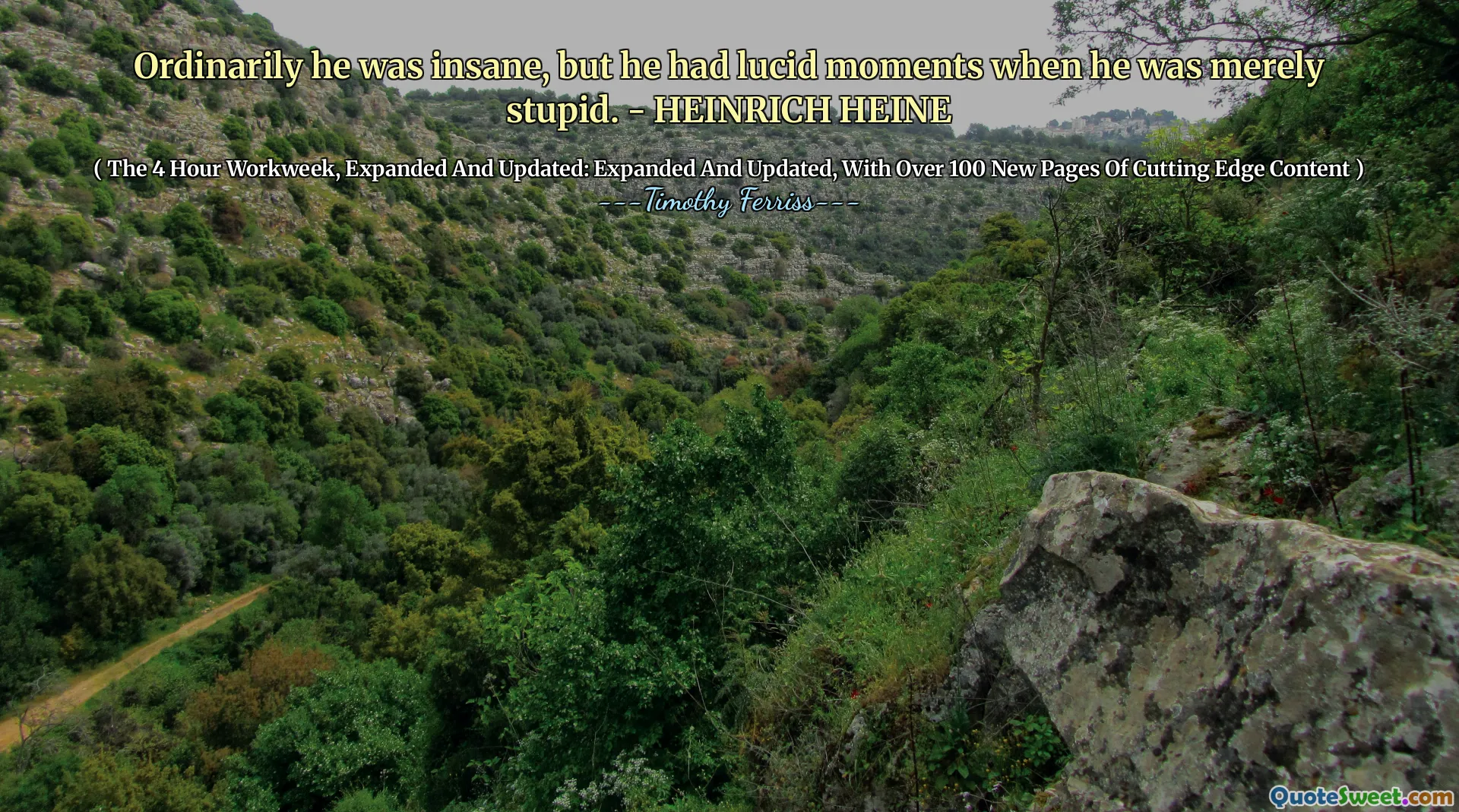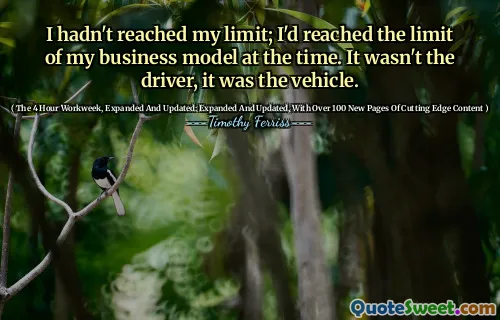
Ordinarily he was insane, but he had lucid moments when he was merely stupid. - HEINRICH HEINE
This quote by Heinrich Heine offers a sharp, almost sardonic insight into the fluctuating nature of human sanity and intellect. It contrasts two states of mind — insanity and stupidity — in a way that flips usual connotations with a twist of irony. Typically, insanity is seen as a more serious or profound condition, while stupidity is often dismissed as mere ignorance or lack of wisdom. Heine cleverly suggests that even when the subject is mostly 'insane,' those moments of clarity — or lucidity — reveal a different problem: just being ‘merely stupid.’
From the standpoint of The 4 Hour Workweek by Timothy Ferriss, this quote resonates as a reminder about the importance of clarity in thinking and decision-making. Ferriss advocates for outsourcing busywork, focusing on effectiveness rather than just activity, and cultivating what he calls 'lifestyle design' — essentially managing one's mental and intellectual state to optimize productivity and happiness. The quote could be extrapolated to highlight that even moments of lucidity, if not paired with wisdom or insight, do not guarantee success or functional intelligence. In business and life, being 'merely stupid' in clear moments might mean making avoidable mistakes or choosing suboptimal paths, reflecting the consequences of not utilizing one’s mental faculties fully or correctly.
Ultimately, the quote challenges us to reflect on our own moments of lucid awareness and whether we’re actually harnessing intelligence or just stumbling through moments of clarity without meaningful progress. It underscores that true wisdom and effectiveness come not merely from lucidity or sanity, but from deliberate and thoughtful application of one’s mental powers. This aligns well with Ferriss’s emphasis on quality over quantity and deep intellectual engagement with one’s priorities and actions.








